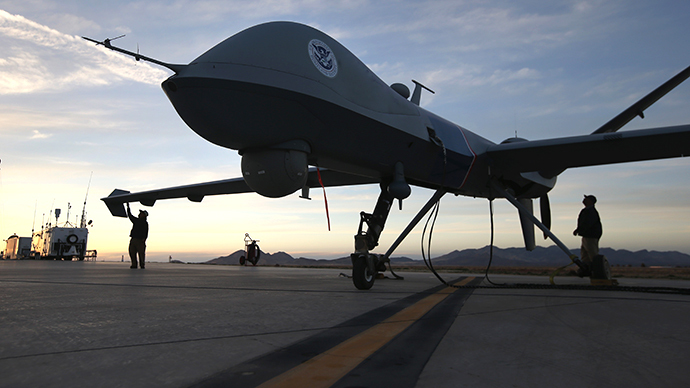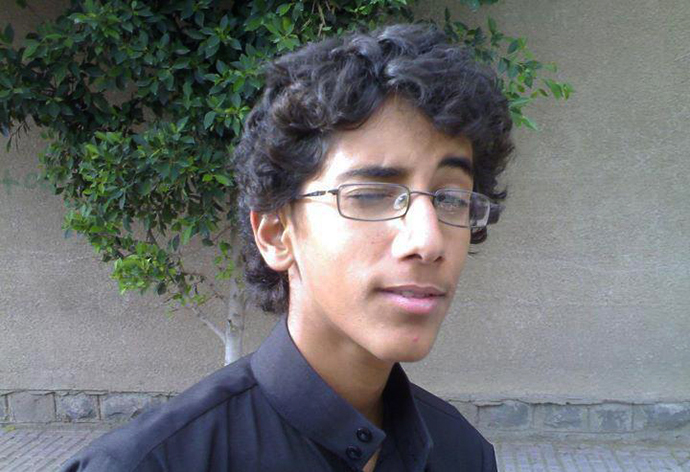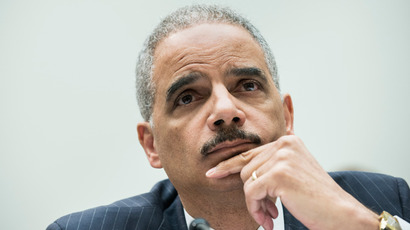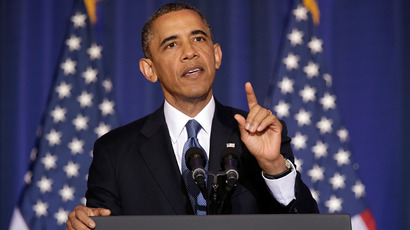Judge grills US Justice Department official over drone strikes

A federal judge said she was “really troubled” by the Obama administration’s "disconcerting" position that drone strike decisions are outside the court's competence.
The remarks by US District Court Judge Rosemary M. Collyer were made on Friday during a court hearing concerning the 2011 drone-strike which killed three US citizens in Yemen. The relatives of the dead filed a lawsuit, charging that the attacks violated the US citizens constitutional rights to due process and to be free from groundless detention. The government in its turn filed a motion for the case to be dismissed.
The high-profile case attracted more spectators than the courtroom could accommodate, with some people having to stand throughout the 80-minute-long heated debate between the judge and the government representative over the role of the judicial branch in making drone attack decisions.
The position of the White House, voiced by Brian Hauck, a deputy assistant attorney general of the Justice Department’s Civil Division, is that courts “aren’t in a position to second guess” and “don’t have the apparatus to analyze” government’s decisions concerning drone attacks.

“How broadly are you asserting the right of the United States to target an American citizen? Where is the limit to this? The limit is the courthouse door,” Collyer is cited by the New York Times as saying.
Hauk insisted the drone strike decisions were never made without detailed scrutiny by the executive branch, which could well be regarded as due process.
The assertion left Collyer unconvinced. "The executive is not an effective check on the executive, when it comes to protecting constitutional rights,” she argued.
Among other arguments put forward by Hauck was that he did not want to see “counterterrorism officials distracted by the threat of litigation.”
Collyer described it as “highly unusual” that such a lawsuit, targeting top US military and national security officials on grounds of alleged constitutional violations, would be allowed to proceed. She said it will not be an easy decision and will require a lot of reading into the matter on her part.
The US citizens killed by drone strikes in Yemen in 2011 are Anwar al-Awlaki – an al-Qaeda leader, his 16-year-old son Abdulrahman, who had no known involvement with terrorists, and Samir Khan, reportedly an al-Qaeda propagandist.

The fact that the three men were killed by drones was confirmed in May by US Attorney General Eric Holder, who also specified that only the senior al-Awlaki was specifically targeted in the attacks.
“Al-Awlaki repeatedly made clear his intent to attack US persons and his hope that these attacks would take American lives,” Holder said. “Based on this information, high-level US government officials appropriately concluded that al-Awlaki posed a continuing and imminent threat of violent attack against the United States.”
The lawsuit, charging the US government officials with violation of the US citizens’ constitutional rights was filed by Nasser al-Awlaki – Anwar's father and Abdulrahman’s grandfather and by Sarah Khan, Samir Khan's mother. Their case was filed by lawyers for the Center for Constitutional Rights and the American Civil Liberties Union.
The civil rights groups particularly stress the case of the 16 year-old US-born boy, who became victim of the drone war despite not being engaged in criminal activity.
UN special rapporteur on counterterrorism and human rights, Ben Emmerson, who has been investigating the US drone program since January, has repeatedly called on the United States to curtail this type of activity, warning that any justification for it cited in international law by US officials is not accepted outside the United States.
In May, President Obama spoke of the need to revamp the country's drone policy at the National Defense University, while at the same time insisting the country needed to have the program in place.
The debate over drone attacks has recently become so acute in the US that residents in a Colorado town have suggested possibly issuing an ordinance that would allow them shoot drones down. The plan prompted the Federal Aviation Administration to warn that such a move would be illegal.














